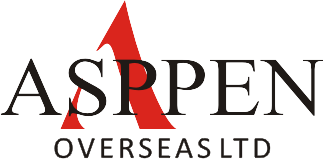Australia's immigration policies and procedures are multifaceted and can vary depending on factors such as the type of visa being applied for, the applicant's country of origin, and their individual circumstances. Here's an overview of some key aspects:
Visa Types:
- Skilled Migration Visas:
- Skilled Independent visa (subclass 189): For skilled workers who are not sponsored by an employer, a state, or territory government.
- Skilled Nominated visa (subclass 190): For skilled workers nominated by a state or territory government.
- Employer-Sponsored Visas:
- Temporary Skill Shortage visa (subclass 482): For skilled workers nominated by an approved employer to fill a position in Australia.
- Employer Nomination Scheme visa (subclass 186): For skilled workers nominated by their employer to live and work permanently in Australia.
- Family Visas:
- Partner visas (subclass 309/100, subclass 820/801): For spouses or de facto partners of Australian citizens, permanent residents, or eligible New Zealand citizens.
- Parent visas: For parents of Australian citizens, permanent residents, or eligible New Zealand citizens.
- Student Visas:
- Student visa (subclass 500): For international students enrolled in a course of study in Australia.
- Humanitarian and Refugee Visas:
- Refugee visa (subclass 200): For people outside Australia who are subject to persecution in their home country and are seeking refuge in Australia.
- Protection visa (subclass 866): For people in Australia who are unable or unwilling to return to their home country due to a well-founded fear of persecution.
- Integration and Citizenship:
- Once in Australia, immigrants have access to various services to help them settle and integrate into Australian society. After meeting certain criteria, immigrants may be eligible to apply for Australian citizenship.
Eligibility Criteria:
- Age: Some visas have age restrictions. For example, applicants for skilled migration visas must typically be under 45 years of age.
- English Proficiency: Most skilled migration visas require applicants to demonstrate a competent level of English language proficiency through tests like IELTS or PTE.
- Education: Skilled migration visas often require a certain level of education, typically equivalent to at least a bachelor's degree or trade qualification.
- Skills and Work Experience: Applicants for skilled migration visas are assessed based on their occupation, work experience, and skills, usually through a points-based system.
- Spouse/Partner: For partner visas, evidence of a genuine and ongoing relationship with an Australian citizen or permanent resident is required.
Visa Process:
- Skill Assessment: Many skilled migration visas require applicants to have their skills assessed by a relevant assessing authority.
- Expression of Interest (EOI): Applicants for skilled migration visas usually need to submit an EOI through the SkillSelect system.
- Invitation to Apply: Based on the EOI, applicants may receive an invitation to apply for the visa.
- Application Submission: Applicants need to submit a complete visa application along with supporting documents.
- Health and Character Checks: All visa applicants must undergo health and character assessments.
- Decision: Once processed, applicants will receive a decision on their visa application.
Costs:
- Visa application fees vary depending on the type of visa being applied for and the applicant's circumstances. Additional costs may include health assessments, police checks, and migration agent fees if using one.
It's important for prospective immigrants to thoroughly research the specific visa requirements and processes that apply to their situation, as immigration laws and policies can change over time. Additionally, seeking advice from qualified migration agents or lawyers can be beneficial in navigating the complexities of the Australian immigration system.
Tips:
- Research Thoroughly: Understand the visa options available and the requirements for each visa type.
- Plan Ahead: Start the application process well in advance, as it can take time to gather necessary documents and meet requirements.
- English Language Proficiency: Improve your English language skills if needed, as higher proficiency can result in more points in the visa application process.
- Skills Assessment: Ensure that your skills are assessed by the relevant authority if required for your chosen visa.
- Seek Professional Advice: Consider consulting with a registered migration agent or immigration lawyer for personalized guidance and assistance with your application.
By understanding the various visa options, eligibility criteria, and the application process, prospective immigrants can better navigate Australia's immigration system and increase their chances of a successful visa application.


